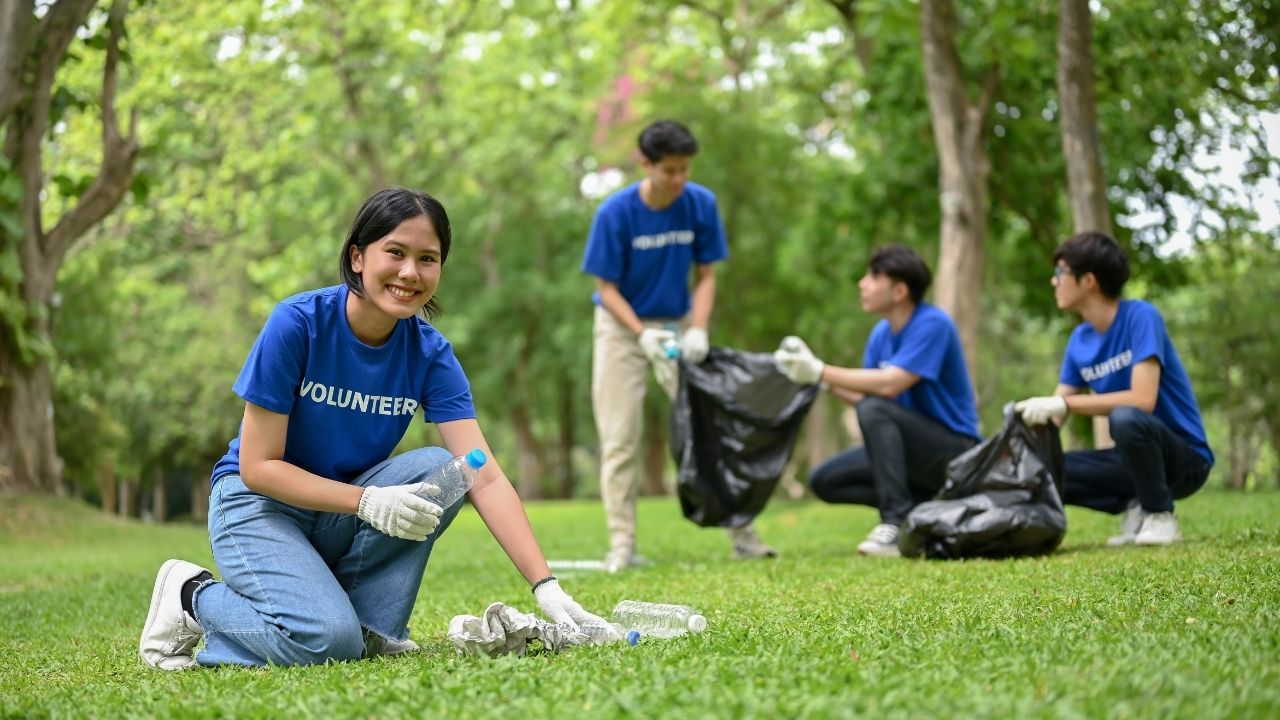
Preserving the natural beauty of our local environment is a responsibility we all share. As members of the community, we have the power to make a meaningful impact on the health and sustainability of our shared ecosystems. By actively participating in local conservation efforts, we can work together to protect wildlife, maintain green spaces, and ensure a thriving future for generations to come.
Volunteer with Local Environmental Organizations
One of the most impactful ways to get involved in local conservation is by volunteering with organizations dedicated to environmental stewardship. These groups often rely on the support of passionate community members to carry out their vital work. Whether it's cleaning up litter along a hiking trail, planting native species in a community garden, or monitoring wildlife populations, there are countless opportunities to lend a helping hand.
Research local non-profit organizations, nature centers, or government agencies focused on environmental conservation in your area. Many of these groups maintain volunteer programs that provide structured activities and training to ensure your time and efforts are well-utilized. By committing just a few hours a week or month, you can make a tangible difference in the health of your local environment.
Participate in Community Cleanup Events
Keeping our shared public spaces clean and free of litter is an essential part of environmental conservation. Community cleanup events provide an opportunity to come together with neighbors and work towards a common goal of maintaining the beauty and cleanliness of our local parks, trails, and green spaces.
Look for announcements from your city, county, or community organizations about upcoming cleanup events. These may take place on a regular basis, such as monthly or quarterly, or be organized in response to specific needs, like after a major storm or seasonal change. Participate in these events and encourage your friends, family, and colleagues to join as well. The more people that get involved, the greater the impact we can have on reducing waste and protecting our local ecosystems.
Support Local Conservation Initiatives
In addition to hands-on volunteer work, we can also support local conservation efforts through other means. Stay informed about environmental initiatives in your community, such as proposals for new parks, wildlife preserves, or sustainable development projects. Attend public meetings, write to local lawmakers, or participate in community forums to voice your support for these important causes.
You can also financially support non-profit organizations, land trusts, or government programs dedicated to conservation. Consider making donations, purchasing memberships, or participating in fundraising events. These contributions help fund the critical work of protecting and restoring natural habitats, educating the public, and advocating for sound environmental policies.
Adopt Eco-Friendly Habits
While large-scale conservation efforts are crucial, we can also make a difference through our individual actions and daily routines. Adopt eco-friendly habits that reduce your environmental footprint and inspire others to do the same.
For example, you can reduce your water and energy consumption, properly recycle and compost household waste, and choose sustainable transportation options like walking, biking, or public transit. Support local and organic food producers, and consider planting native species in your garden to provide habitats for pollinators and other wildlife.
By making conscious choices in our personal lives, we can contribute to the overall health and resilience of our local environment. These small steps, multiplied by the collective action of our community, can have a significant impact on conservation efforts.
Educate and Engage Your Community
Spreading awareness and inspiring others to get involved in local conservation is another important way we can make a difference. Share your knowledge and passion for environmental stewardship with your friends, family, and neighbors.
Organize educational events, such as nature walks, wildlife presentations, or workshops on sustainable living. Collaborate with local schools, community centers, or libraries to provide engaging programming that teaches people about the importance of conservation and how they can take action.
Additionally, use your voice and influence to advocate for environmental causes within your community. Speak up at local government meetings, write letters to elected officials, or participate in community forums to ensure the protection of our natural resources remains a priority.
Conclusion
Preserving the health and vitality of our local environment is a shared responsibility that requires the active participation of community members like ourselves. By engaging in a variety of conservation efforts, from volunteering to advocating for sustainable policies, we can work together to safeguard the natural beauty and biodiversity of our shared ecosystems.
Remember, every individual action, no matter how small, can contribute to the greater good of our local environment. So let's embrace the opportunity to make a positive impact and ensure a thriving, sustainable future for our community and the natural world around us.
 Family Craft ProjectsHome ImprovementCooking and BakingReuse and RecycleDIY GiftsEco-Friendly ProjectsDIY Home SolutionsSeasonal ActivitiesFun and GamesLearn TogetherPrivacy PolicyTerms And Conditions
Family Craft ProjectsHome ImprovementCooking and BakingReuse and RecycleDIY GiftsEco-Friendly ProjectsDIY Home SolutionsSeasonal ActivitiesFun and GamesLearn TogetherPrivacy PolicyTerms And Conditions
